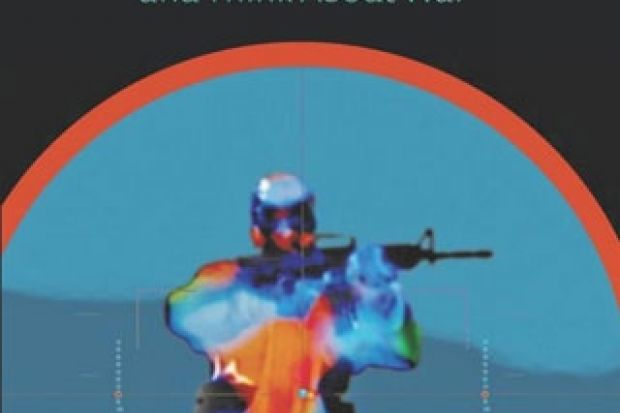Prince Harry was recently pilloried in the global media because he spoke of killing people as part of his military duties in Afghanistan in language that was better suited to a description of playing a video game. Even though it was later partially retracted, his statement underlines Christopher Coker’s thesis in this fascinating book. The subtitle - How 21st Century Technology is Changing the Way We Fight and Think About War - is a play on the subtitle of Susan Greenfield’s 2003 book, Tomorrow’s People: How 21st-Century Technology is Changing the Way We Think and Feel. But it is also a powerful statement of our plunge into what I would call the “post-future”. The urgent question today is fast becoming “When will we be post-human?”
Coker’s deployment of wide-ranging sources in this stylish, accessible book is breathtaking. As he ranges across neuroscience, anthropology, cybernetics, history, psychology, philosophy, science fiction and literature with consummate ease, the sum of his erudition feels like a warning beacon as we anticipate the post-human world to come. There is lots of reading pleasure to be had along the way, with gems of personal and biographical data about his subjects thrown in to keep us hooked. For instance, did you know that the term “robot” was coined by playwright Karel Čapek from a Czech word meaning “forced labour”? Or that someone who survived direct exposure to both nuclear strikes on Japan in 1945 lived until 2010?
Coker is just as good at painting a picture for us about the sheer banality of the lives of the guys who turn up for work at an “office” in the back of a truck where they electronically guide unmanned drones in Afghanistan or Pakistan, 7,000 miles away from their nondescript home in the US. What can Coker see around the cybernetic military bend? What will post-human warfare look like? The drones are now more numerous than the soldiers; we have almost gone too far in accelerating military technology, and invested too much money, to turn back now. Isaac Asimov’s time really has come.
The late Paul Hirst published one of his finest works, War and Power in the 21st Century: The State, Military Power and the International System, in 2001. He analysed how new military technologies change the way that wars are fought and how power relations change as a result. His survey of military history went back several centuries, as does Warrior Geeks. In my view no one has yet bettered Hirst’s account. Coker’s comes close, but in its wide-ranging trawl it accepts too many conflicting and contradictory perspectives on power and its relationship to military technology and war. Arguably, the thinker who has produced the most provocative work on war, speed and 21st-century technology is the octogenarian Paul Virilio. Virilio showed delight at being studied in military academies, and Coker’s book will be read there too. Coker duly namechecks Virilio’s landmark 1977 work Speed and Politics: An Essay on Dromology here, and the post-humanism that is the focus of Coker’s book remains a particular bugbear for Virilio with his self-declared “anarchistic Christianity”. For Coker, post-human is, as he says, “not a very pleasing term”, but neither was “postmodern”, and now that term is used regularly in military circles just as it dropped off the global academy’s radar. War, Coker says, will continue “on other terms” as the “post-human future gradually unfolds”.
Will we ever be post-human? New Order’s 1983 single Blue Monday was meant to sound like the machines were playing the entire song themselves - but Bernard Sumner ended up singing the vocal line when the robotic version was accidentally wiped from the track. Perhaps this was a sign for the post-future. Maybe we can never be fully post-human.
Warrior Geeks: How 21st Century Technology Is Changing The Way We Fight and Think About War
By Christopher Coker
C. Hurst & Co, 384pp, £25.00
ISBN 9781849042543
Published 18 February 2013
Register to continue
Why register?
- Registration is free and only takes a moment
- Once registered, you can read 3 articles a month
- Sign up for our newsletter
Subscribe
Or subscribe for unlimited access to:
- Unlimited access to news, views, insights & reviews
- Digital editions
- Digital access to THE’s university and college rankings analysis
Already registered or a current subscriber? Login




